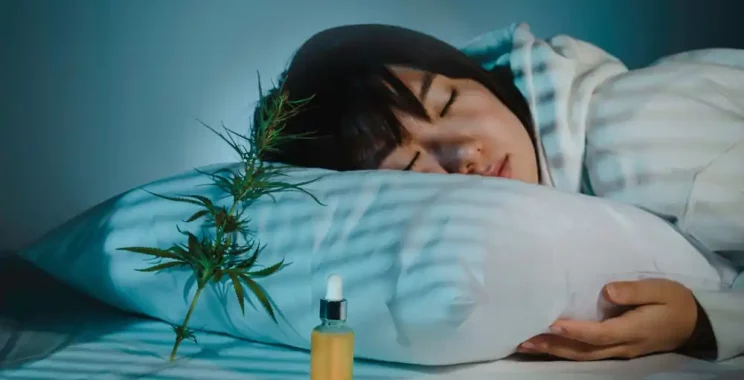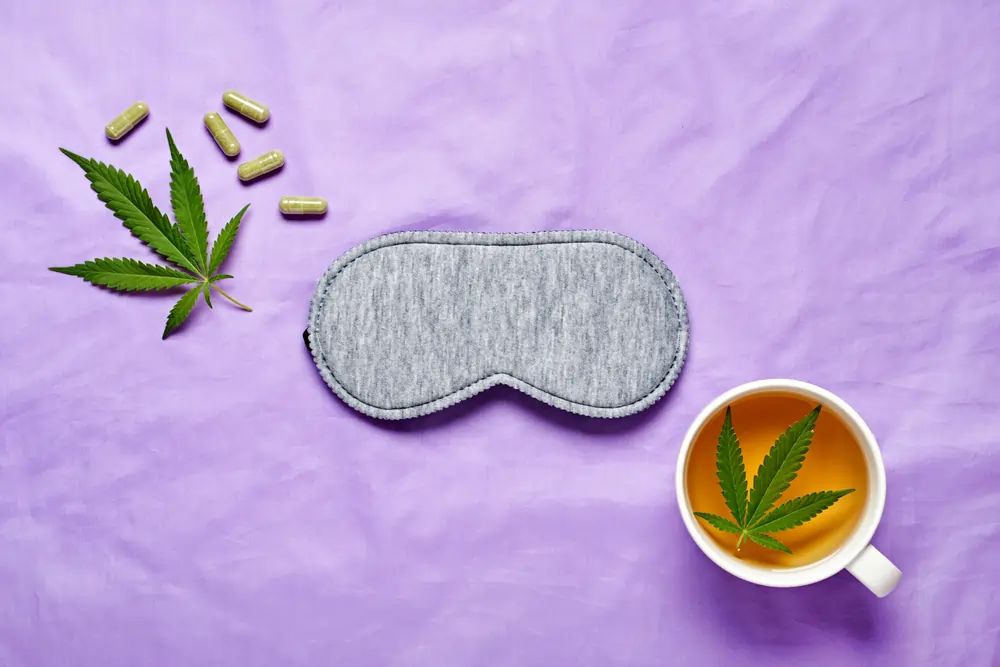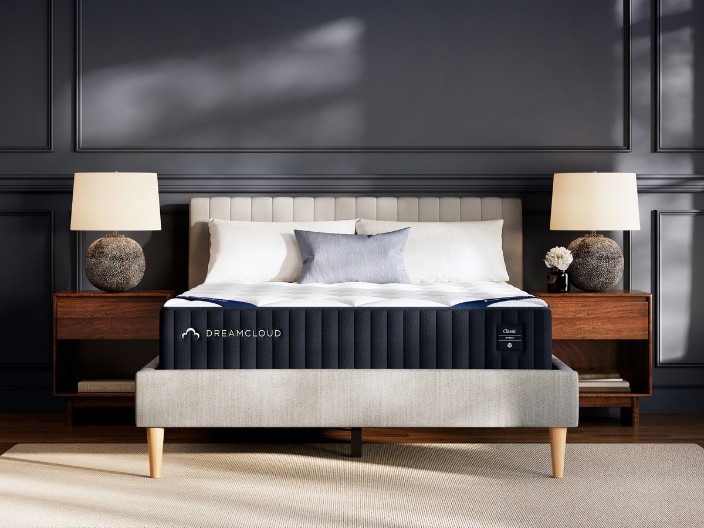How to Use CBD for Sleep
Share
Fact checked
Reviewed by experts
Updated
January 9, 2023
Quick read
4 mins to read
List of Content
Sleep is essential for optimal health. The American Academy of Sleep Medicine and Sleep Research Society established a consensus recommendation of sleep needed to promote optimal health in adults.
It proposed that for young adults, individuals recovering from sleep debt, and individuals with illnesses, sleeping more than 9 hours per night might be appropriate. And sleeping less than 7 hours per night is associated with adverse health outcomes.
However, healthy sleep requires adequate duration, good quality, appropriate timing, consistency, and the absence of sleep disturbances or disorders. About 50 to 70 million Americans chronically suffer from a sleep disorder.
One such popular strategy for sleeping better is taking cannabidiol or CBD for sleep. It is a derivative of cannabis Sativa or Indian hemp, known for several beneficial pharmacological effects, such as aiding chronic pain, inflammation, migraines, and many more.
Keep reading to discover what is Cannabidiol (CBD). And exactly how much CBD should you take for sleep?
What Is Cannabidiol (CBD)
Cannabidiol (CBD) is also known as a cannabinoid. It is a concentrated oily residue of the plant and an active ingredient in Cannabis sativa or Indian hemp, a natural textile fiber. Hemp is derived from a plant cultivated for its medicinal properties.
The word “cannabis” refers to all products derived from the plant Cannabis sativa, which contains over 400 chemical compounds, of which there are approximately 80 biologically active chemical molecules, and only 66 are termed cannabinoids. The most important cannabis compounds are cannabinoids and tetrahydrocannabinol (TCH), particularly the isomer delta (Δ9-THC).
And unlike tetrahydrocannabinol (TCH), which is known for its effects such as “getting high” and precisely termed “marijuana,” the cannabinoid is non-intoxicating as it does not present psychoactive activity. Instead, cannabinoid exerts several beneficial pharmacological effects, such as aiding chronic pain, inflammation, migraines, epilepsy, autoimmune diseases, depression, and anxiety. So now let’s see if there are any benefits of CBD as a sleep aid.
Benefits of CBD as a Sleep Aid
Sleep disorders can change sleeping patterns or habits that can negatively affect health. They are classified into major groups: insomnia, sleep-related breathing disorders, parasomnias, sleep-related movement disorders, and circadian rhythm sleep-wake disorders. And about 50 million to 70 million adults in the United States report having some type of sleep disorder.
Moreover, a systematic review found moderate evidence suggesting that cannabinoids are an effective treatment to improve short-term sleep outcomes. Although not the best CBD for sleep solution, it may reduce sleep disturbances associated with obstructive sleep apnea syndrome, fibromyalgia, chronic pain, and multiple sclerosis.
Besides sleep disorder, the most common conditions for which medical cannabis is used in Colorado and Oregon are pain, spasticity associated with multiple sclerosis, nausea, posttraumatic stress disorder, chemotherapy, epilepsy, cachexia, glaucoma, HIV/AIDS, and degenerative neurological conditions.
Side Effects of CBD
Even though FDA has not approved the cannabis plant for any medical use, however, the FDA has approved several drugs that contain individual cannabinoids, such as Epidiolex (a purified CBD product). Following are the side effects of CBD for sleep.
Fatigue or Sleepiness
One of the adverse effects of CBD for sleep is that it may make you feel a bit tired — especially when you take a large dose. However, it may work in your favor if used systematically for sleep.
Changes in Weight or Appetite
Two systematic reviews included trials investigating cannabinoid therapies in patients with HIV/AIDS. They found that the individuals’ weights increased significantly on higher doses of cannabis than on lower doses. Although, changes in appetite, food, and caloric intake were not considered valuable in any of the studies.
Stomach Upset or Diarrhea
Cannabidiol (CBD) is a concentrated oily residue of the plant Cannabis sativa, and a 75-year-old female presented with a one-year history of chronic diarrhea while taking cannabidiol (CBD) for pain.
Dry Mouth
Pieces of evidence from the Elverdin lab pointed out an adverse action of cannabinoid receptor activation in the regulation of saliva secretion, which might lead to the dry mouth sensation experienced by heavy cannabis users.
What Forms Does CBD Come In
Cannabidiol (CBD) is a concentrated oily residue of the plant Cannabis sativa that comes in three forms.
- Full-spectrum CBD: it has all the components of the cannabis plant.
- CBD: it is an isolate and the pure form of CBD.
Broad-spectrum CBD: very similar to full-spectrum CBD but contains additional cannabis plant compounds.
How Much CBD Should You Take for Sleep
Various factors go into deciding how much CBD to take, for example, your body weight, the condition you’re treating, individual body chemistry, and the concentration of CBD in pills, capsules, drops, or gummies. So, how to know the CBD dosage for sleep?
Before administering any CBD product, talk with your doctor for safety purposes. They can guide you on how much CBD for sleep is safe, and when to take CBD. A study comparing CBD with nitrazepam found that high-dose CBD at 160 mg increased sleep duration.
However, if you lack recommendations from the doctor, it is best to start with a single dose. This could mean starting with 20 to 40 mg daily and then gradually increasing the amount by 5 mg within a gap of a week. For example, start with 40 mg to treat severe pain, then increase the dose to 45 mg after a week, and continue this until you feel that it’s effectively treating your symptoms.
Conclusion
Cannabidiol (CBD) is a concentrated oily residue of the plant and an active ingredient in Cannabis sativa. It is known for several beneficial pharmacological effects and can be used as a sleep aid.
However, there are a lot of factors that go into deciding how much CBD to take. So, consult your doctor before administering any kind of CBD product for safety purposes.
FAQs
A study comparing CBD with nitrazepam found that high-dose CBD at 160 mg increased sleep duration.
Yes. Daily use can help, especially if you’re taking it for symptoms like chronic pain, frequent anxiety, or trouble sleeping, which you experience daily.
Full-spectrum CBD contains all the components of the cannabis plant, including TCH, which have intoxicating properties, so it may cause excessive sedation and drowsiness
Unlike solutions like melatonin or Sleep Aids, CBD works with your body to restore your circadian rhythm. Therefore, it will not make you feel tired or groggy in the morning.
No, it doesn’t, because CBD, or any other compound, supplement, or drug, is not an obesity treatment.
CBD doses of 300 mg to 600 mg in single-dose studies were shown to help decrease anxiety and induce relaxation.
This website does not offer medical advice nor professional medical services; rather, it is provided solely for educational, informational, and/or entertainment purposes. Individuals seeking medical advice should consult a licensed physician. The information provided should not be used for diagnosis or treatment of any condition, disease, or injury. When you have a medical condition, you should always talk to licensed doctor or other certified medical professional. You should never delay seeking professional medical advice or treatment based on the contents of this website. Call 911 or immediately go to the nearest emergency room if you think you may have a medical emergency. The contents of this website are provided “as-is”, Sleep Authority and its parent, subsidiaries, affiliates, employees, contributors disclaim any warranty of the information contained herein. Please contact using contact form to report any errors, omissions, misinformation, or abuse.
Sleep Authority is brought to you by Resident, the company that brings you Nectar, DreamCloud, Awara, Wovenly, Bundle, Home Well Designed and Level Sleep.




